How to Save Water at Home
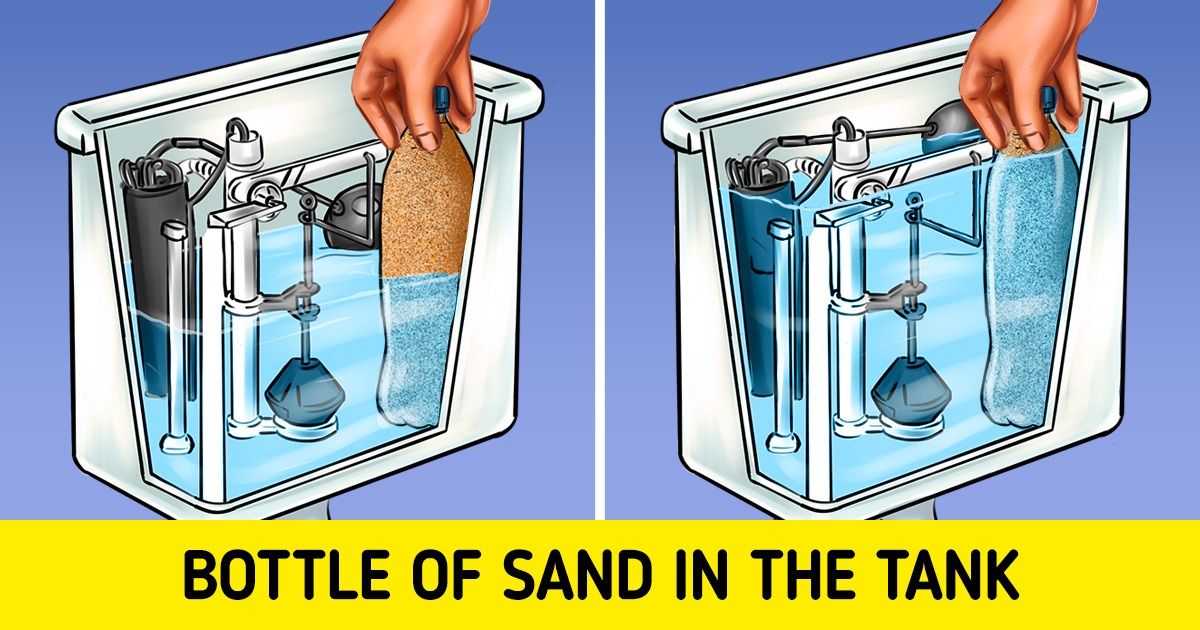
As we already know, water is an essential resource for the survival of our species, since pretty much any internal process, as well as activity, depends on it. Therefore, it is very important to consume it responsibly and avoid wasting it.
5-Minute Crafts has compiled 22 practical tips for you to optimize the use of water in your daily life at home.
1. Use a bucket to water your plants or wash your car.
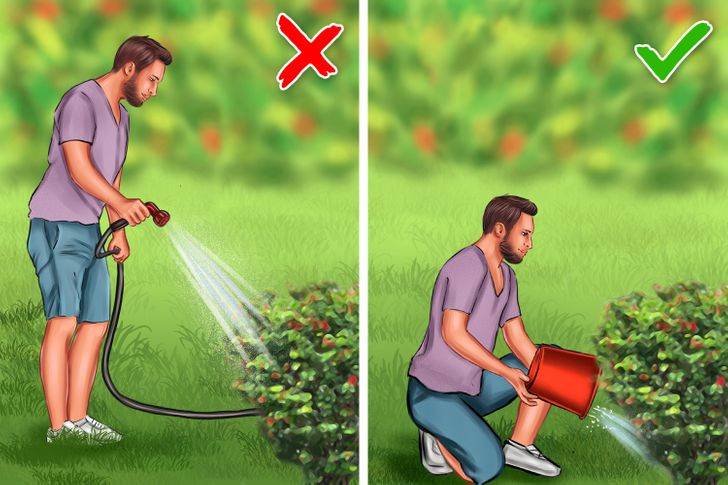
Using a hose can consume about 1,000 liters of water per hour, so it’s recommended to use buckets or cans to water your plants or wash the car. This is a good way to keep better control of the amount of water you’re consuming.
It’s also suggested to water early in the morning or near evening to prevent the water from evaporating quickly.
2. Keep your garden free of weeds.
Keeping a clean garden can prevent other plants in your garden from accessing nutrients, like the light and water they require.
3. Place a bottle filled with sand in the toilet tank.
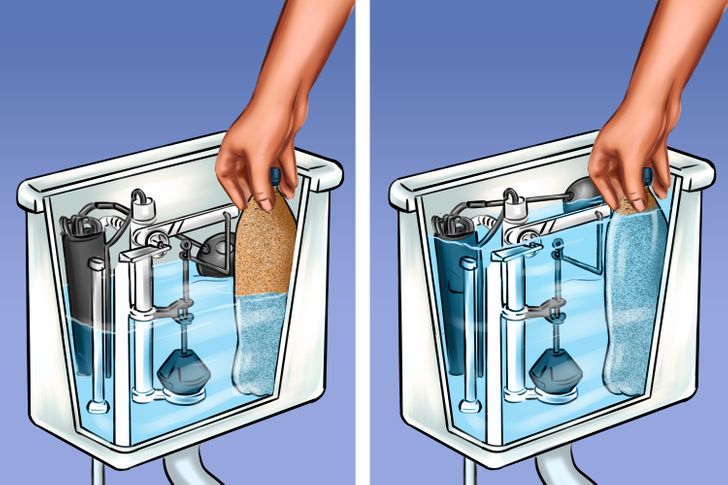
Place a bottle with sand or something similar into the toilet tank. Thanks to the weight of the bottle, the water level of the tank will rise, which, in turn, will cause the tank to use less water to refill after each flush.
4. Give preference to showering instead of taking baths.
Filling a regular bathtub can consume about 80 liters of water, so it’s recommended to take a shower if you want to reduce your consumption. If for whatever reason you cannot do that, make sure you don’t use more water than needed.
5. Reuse water when washing fruits and vegetables.
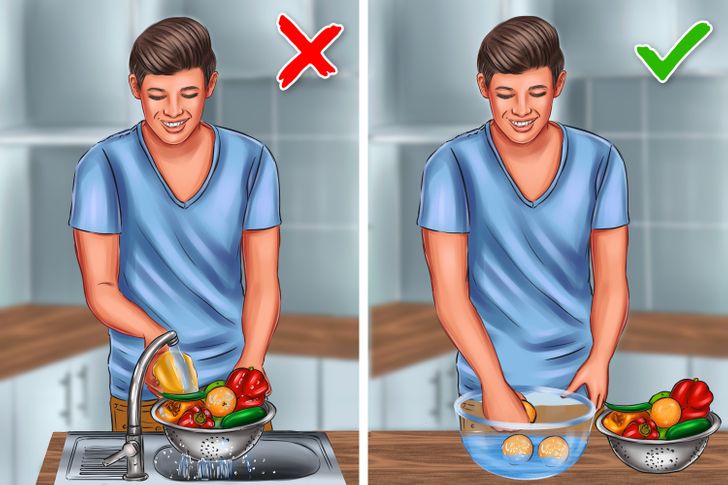
Use a bowl to wash fruits and vegetables instead of doing it under a running tap if you have a habit of doing so. Then reuse the leftover water to water your plants, for example.
6. Choose pots of an appropriate size.
If you use pots that are too large to cook your food, you will probably have to use more water than you really need. Reducing the amount will also help you save energy, as the water will take less time to boil.
7. Use a glass when brushing your teeth.
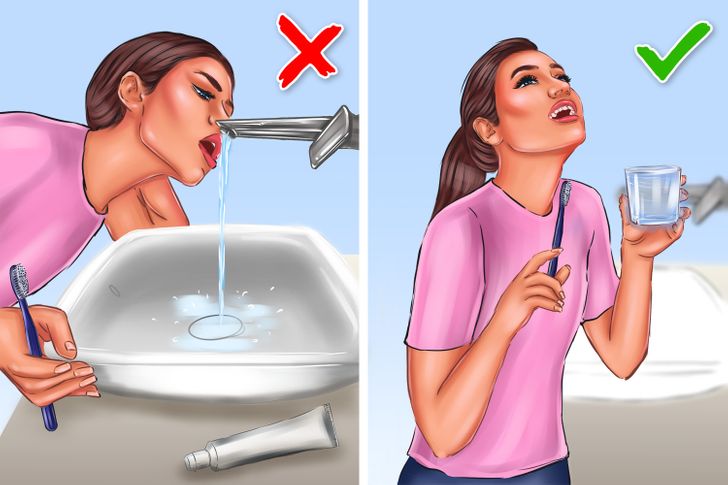
Use a glass of water to rinse your mouth instead of running the tap and drinking directly from there. If you take into account all the times you have to brush your teeth every day, you could save a lot of water per month by using this method.
8. Avoid watering your plants during windy days.
The wind causes the water to be blown away, and it also makes it evaporate more easily. You’ll then have to water the plants again.
9. Keep a bucket in the shower.
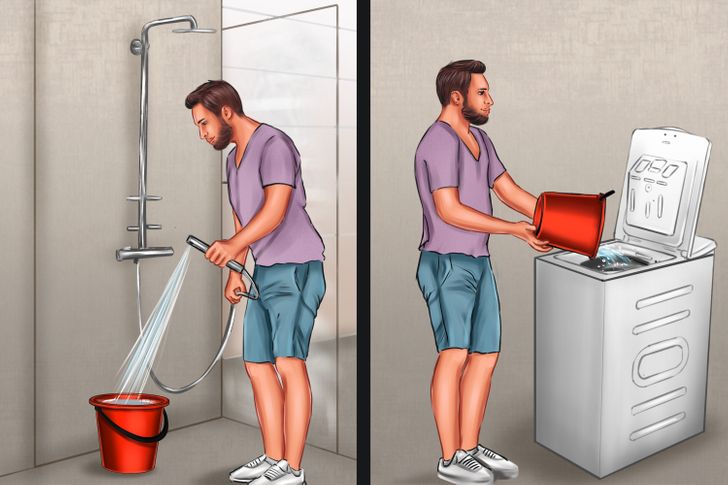
In many cases, people have to wait a while before the water becomes lukewarm when they turn on the faucet to take a bath or shower. All this results in a large amount of water wasted, without any use.
Keeping a bucket or large bottle in the bathroom could help us to collect part (if not all) of this water and use it for something else, such as watering the plants or even washing clothes.
10. Favor the use of endemic plants.
Exotic plants usually require more water than native or endemic plants, so it’s better to stick to what you find in your local area.
11. Bathe your pets in the garden.
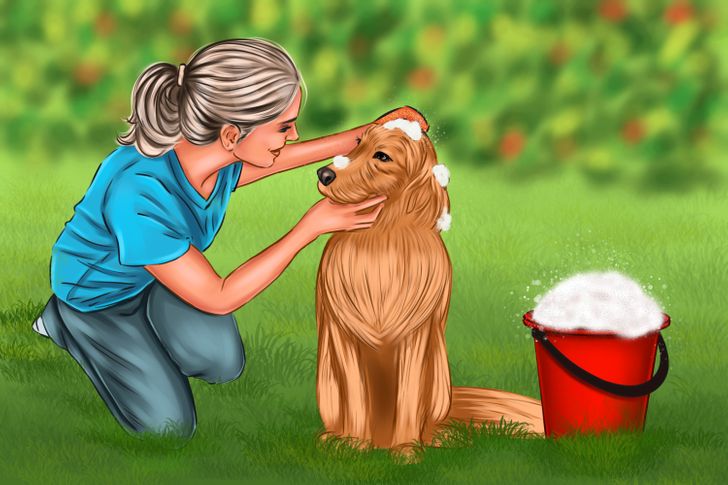
Whenever you want to give your pets a bath, do it in places in your garden that need constant watering to reuse the excess water.
However, take into account that some products can damage the grass or plants, so make sure to read the labels properly.
12. Reuse melted ice cubes to water your plants.
When you finish drinking water or natural juice with ice, place the ice cubes in a flower pot instead of pouring them down the sink. However, it’s better to wait for them to melt, as some plants might be sensitive to very cold water.
13. Don’t fill the pool to the brim.
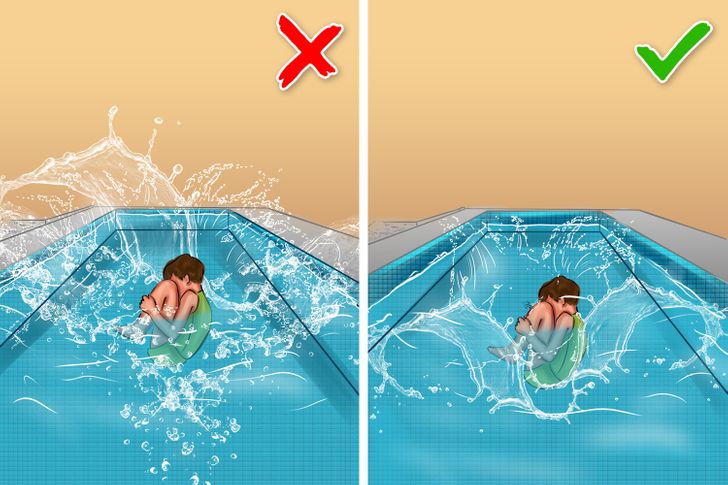
By filling the pool and using more water than necessary, more water will be lost each time someone dives or splashes in the pool.
Leave several inches unfilled each time you need to replenish the lost water.
14. Keep a bottle or pitcher of water in the refrigerator at all times.
If you have to wait for the water from the tap to cool down, you’re wasting water. By keeping a bottle in the fridge, you avoid letting the tap run until the water is cold enough for you to drink it.
15. Repair leaking pipes immediately.
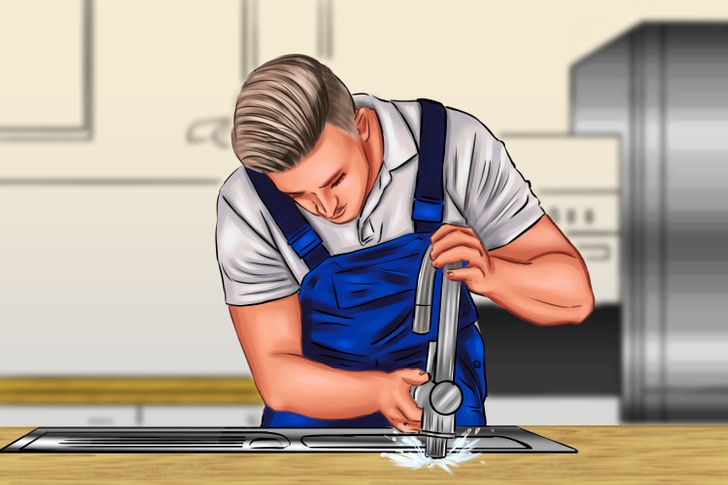
Regularly check the pipes and faucets for leaks and seepage. A single water leak can result in the waste of several thousand liters of water per year, so it’s extremely important to find them and fix them as soon as possible.
16. Don’t use your toilet as a garbage can.
Don’t throw away waste, such as dental floss, cotton swabs, hairpins, etc. Not only will this waste water when you flush, but it could clog your plumbing, which, in turn, will result in more loss of water.
17. Defrost your food in the microwave.
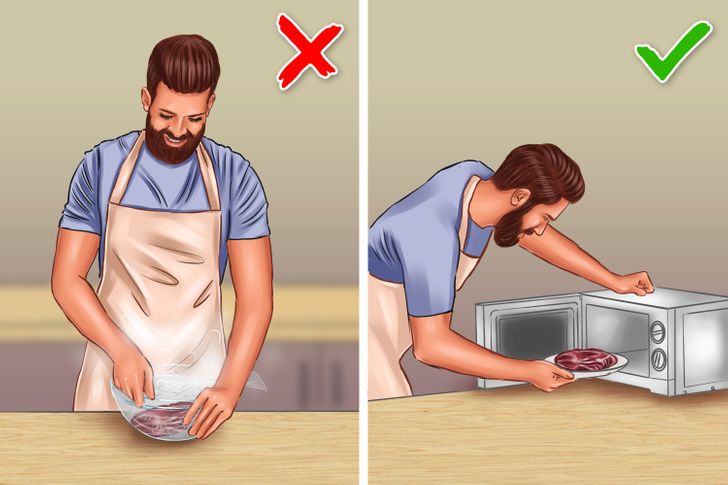
Don’t use warm water to thaw your food. Instead, place them at the bottom of the refrigerator or use the corresponding defrost function on the microwave.
18. Wash full loads of laundry only.
Avoid using the washing machine for small amounts of laundry. A full load is much more efficient in terms of water consumption. However, you might not be able to wait for more laundry to be washed. In that case, be sure to manually select the water-saving option, if it’s available, as your washer probably won’t do it automatically.
19. Clean the dishes before washing them.
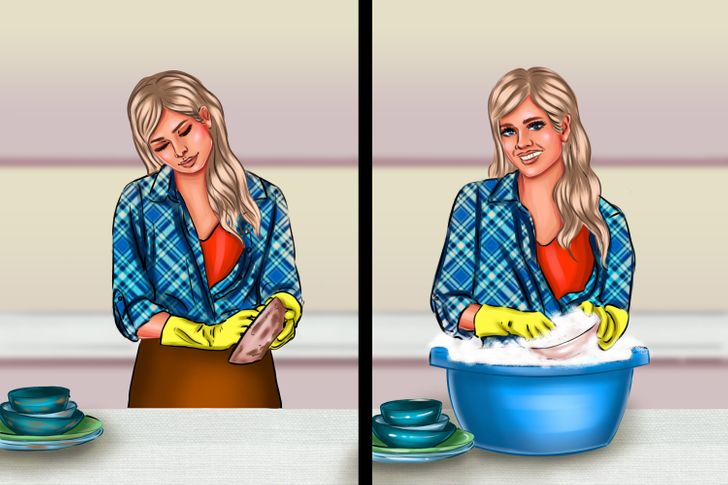
Before washing your dishes, cutlery, and cups, wipe them with a damp kitchen towel or a cloth to avoid rinsing them with water before using detergent. It is also recommended to soak dirty dishes in a bowl of water with detergent to remove grease before rinsing thoroughly.
20. Use a timer in the shower.
Generally, it’s recommended to take shorter showers to optimize water consumption at home. However, it’s also true that it can be difficult to keep track of the time it takes to do this daily activity. Carry a waterproof timer or watch with you and hang it on the curtain rod or shower holder so you can keep an eye on it.
21. Cook your pasta in the sauce instead of another pot.
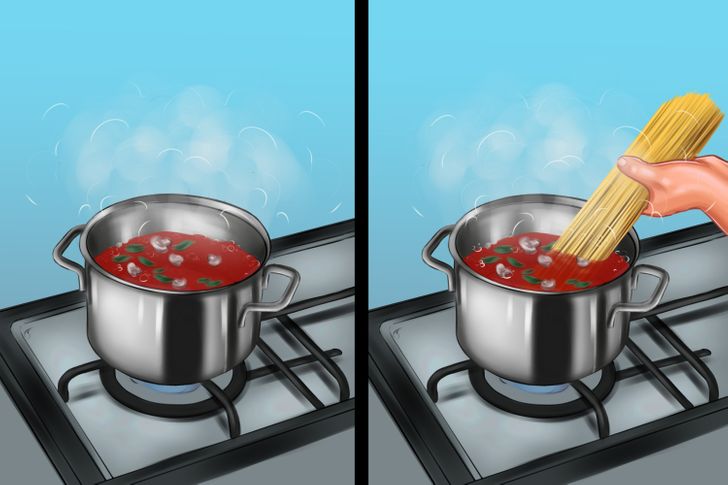
Instead of cooking your pasta in boiling water, you can try to do a one-pot pasta by cooking it directly in a sauce that’s liquidy enough. Not only can this add more flavor to your whole dish, but it can also save a lot of water.
22. Check your bills on an ongoing basis.
Keeping an eye on your water bills can help you spot drastic changes from month to month due to leaks or leaking pipes. As we mentioned before, fixing these things is very important.